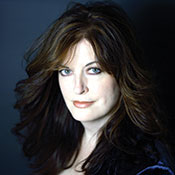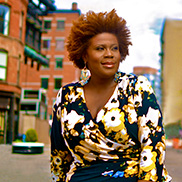
Lyric Baritone Robert Sims on Legacy, Tradition & Ol’ Man River
David Lewellen
PUBLISHED
Tagged Under: 2018.19 Season, Guest Artist, Vocalist
From spirituals to “Ol’ Man River,” Robert Sims stands within a long tradition.
Sims, a busy advocate of African-American spirituals who recently appeared with the Mormon Tabernacle Choir, will sing the part of Joe in the Milwaukee Symphony’s tribute to Jerome Kern this week. The concert features highlights of Kern’s contributions to the great American songbook, along with a concert version of his classic musical Show Boat.
As a classically trained singer, Sims also performs art songs and opera, but he finds his fullest expression in the African-American spiritual tradition. “When I sing my spirituals, I sing with classical voice and technique,” he said – an approach that goes back to Paul Robeson and even further. “It’s the closest I can come to presenting the music of my people in a classical setting. But spirituals really speak to an audience.”
In fact, they speak so vividly that usually when an African-American vocalist gives a recital full of European lieder, “you get to the end, and everyone’s waiting for the spiritual,” Sims said with resignation. But he has found that he can give entire recitals of the spiritual repertoire and find artistic fulfillment.
“All great popular music – jazz, blues, R&B, soul, rock – it all comes from spirituals,” Sims said. “Dvořák thought there should be a whole conservatory built around spirituals. This is America’s music, so why not celebrate it and have full concerts of it?”
Spirituals are “a documentation of the lives of the enslaved, by the enslaved,” Sims said. “They’re folk songs passed down by oral tradition. Someone in Mississippi would have their version of a spiritual, and someone else in Georgia would have their version.”
And what about “Ol’ Man River,” the most famous song from Show Boat, written by a white composer and lyricist to tell the hardships of a black character? Sims pointed out that rivers appear often as metaphor in spirituals, “that you can’t seem to get over, get to the other side.”
In his younger days, he toured with his mentor William Warfield, who sang the song in the 1951 movie version. “I really think about Bill Warfield when I sing ‘Ol’ Man River,’” Sims said. Warfield, for his part, sang the song the day after Martin Luther King was assassinated, “and he said Martin was just like the river. He was going to keep rolling along.”
Paul Robeson, who appeared in the 1936 movie version of Show Boat, was probably the song’s most famous interpreter. He changed some of the lyrics for concert performance in later years, altering the tone from existential suffering to protesting injustice. “Get a little drunk and you land in jail” became “Show a little grit and you land in jail,” in Robeson’s version, and “I’m tired of living but scared of dying” became “I must keep fighting until I’m dying.”
Sims plans to sing the original lyrics at the concerts in Milwaukee, “but who knows? Everyone can take with them what their interpretation is.”
Although Joe gets by far the best-known number in Show Boat, he has little to do with the main plot. But Sims pointed out that the character of Julie is mixed race but passing for white, and “Joe and his wife are a constant reminder that she is one of them.” And when the piece premiered in 1927, putting black and white characters on the stage together was considered daring. “His just being there is major,” Sims said. “Singing that song is major.”
The song has been memorably performed by many white singers, up to and including Judy Garland and Frank Sinatra. Nevertheless, only African-American bass-baritones carry the expectation of having “Ol’ Man River” in their repertoire. But Sims said, “I’m proud and happy to do the music that I do.” Thinking of Robeson, Warfield, and many others, “it’s wonderful to follow in their tradition.”



